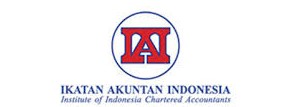Strengthening Strategies for Institutional Readiness of Public Universities in the Transformation toward Public Service Agency Status: A Case Study of PTN X
Abstract
This study was carried out to understand how PTN X prepares itself to become a Public Service Agency (Badan Layanan Umum or BLU). Research on this topic is still limited, especially in the context of vocational higher education, even though the transformation toward BLU has a big impact on how institutions manage their finances, governance, and human resources. The purpose of this study is to describe PTN X current level of readiness and to identify strategies that can strengthen its institutional capacity in facing the BLU transition. The study used a qualitative descriptive approach involving 15 key informants selected through purposive sampling. Data were collected through interviews, focus group discussions, and document review, and analyzed thematically to capture the main issues and strategies emerging from the transformation process. The results show that PTN X is partly ready for BLU implementation. Progress has been made in governance and planning systems, but some weaknesses remain, such as limited coordination between units, dependence on government funding, and incomplete digital integration. Leadership commitment and clear policies play a key role in maintaining progress, although bureaucratic procedures still slow down flexibility and innovation. In general, this study concludes that PTN X readiness can be strengthened through better coordination, improved financial independence, digital integration, and continuous staff development. The findings also highlight that BLU transformation is not just about meeting regulations but about changing the institutional mindset to be more adaptive and accountable. The results are expected to give insight to policymakers and other vocational institutions that are preparing for the same transition.
References
Altbach, P. G., & Salmi, J. (2020). The road to academic excellence: The making of world-class research universities. World Bank Publications. https://doi.org/10.4324/9780203842171
Braun, V., & Clarke, V. (2006). Using thematic analysis in psychology. Qualitative Research in Psychology, 3(2), 77–101. https://doi.org/10.1191/1478088706qp063oa
Creswell, J. W. (2014). Research design: Qualitative, quantitative, and mixed methods approaches. SAGE Publications.
Denzin, N. K. (2017). The Research Act: A Theoretical Introduction to Sociological Methods. Routledge.
Fatmawati, E., & Suharto, B. (2024). Change management towards good university governance in Indonesia: Study at Islamic religious universities based on BLU mandate. Cogent Social Sciences, 10(1), 2333081. https://doi.org/10.1080/23311886.2024.2333081
Grindle, M. S. (1997). Getting Good Government: Capacity Building in the Public Sectors of Developing Countries. Harvard Institute for International Development.
Hood, C. (1995). The “New Public Management” in the 1980s: Variations on a theme. Accounting, Organizations and Society, 20(2–3), 93–109. https://doi.org/10.1016/0361-3682(93)E0001-W
Jarernsiripornkul, S., & Pandey, I. M. (2018). Governance of autonomous universities: Case of Thailand. Journal of Advances in Management Research, 15(3), 288–305. https://doi.org/10.1108/JAMR-12-2016-0103
Kementerian Keuangan Republik Indonesia. (2023). Pedoman Reformasi Pengelolaan Keuangan Badan Layanan Umum (BLU) 2023.
Kotter, J. P. (2012). Leading Change. Harvard Business Review Press. https://doi.org/10.15358/9783800646159
Lee, M. N. N., & Wan, C. Da. (2020). University Governance and Management in Southeast Asia. Oxford University Press. https://doi.org/10.1093/acrefore/9780190264093.013.209
Nurlatifah, A., Suratman, B., & Hariyati. (2021). Pola Pengelolaan Good University Governance Badan Layanan Umum. Journal of Accounting Science, 5(1), 28–34. https://doi.org/10.21070/jas.v5i1.429
Prasetyo, A., & Handayani, R. (2023). Managing autonomy in vocational higher education: Challenges and strategies of Indonesian polytechnics. Jurnal Pendidikan Vokasi, 13(1), 56–70.
Rizkia, A. P. (2023). BLU readiness towards Legal Entity PTN: Competence, professionalism, motivation, and governance at PTN X. Proceedings of the International Seminar on Community-Based Public Administration (ISCOAB-PSA).
Scott, T., & Guan, X. (2023). Challenges facing Thai higher education institutions: Financial stability and perceived quality. Policy Futures in Education. https://doi.org/10.1177/17577438221140014
Siregar, K. E., Nur, A., & Hakim, R. (2024). Enhancing governance in Indonesian legal entity state universities (PTNBH): A best-practice analysis. Jurnal Ekonomi Dan Manajemen Indonesia (JEMIN).
Sugiyono. (2024). Metode Penelitian Kuantitatif, Kualitatif dan R&D. Bandung: Alfabeta.
Sulila, I. (2021). The existence of higher education in Indonesia as a Public Service Agency in the implementation of Good University Governance. Journal of International Conference Proceedings, 4(3). https://doi.org/10.32535/jicp.v4i3.1348
Yudianti, R., & Suryandari, D. (2015). Internal control and governance quality in Indonesian state universities. Jurnal Akuntansi Dan Keuangan Negara, 9(1), 31–45.







.png)
.png)
